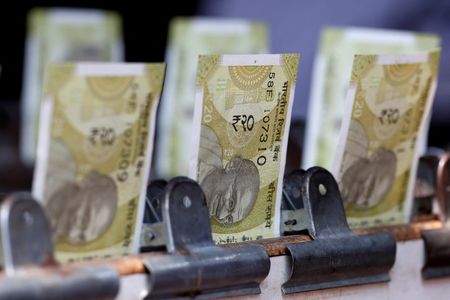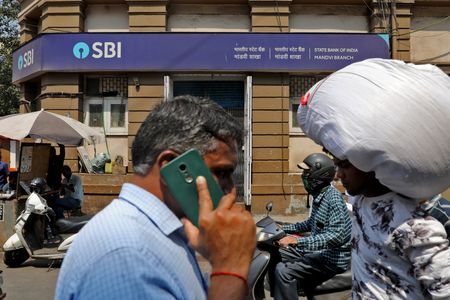By Jaspreet Kalra
MUMBAI (Reuters) – The Indian rupee weakened in early trading on Thursday, weighed by dollar bids on account of corporate hedging and portfolio outflows, traders said, even as its regional peers benefited from broad weakness in the greenback.
The rupee declined 0.5% to 85.67 against the U.S. dollar, as of 10:20 a.m. IST.
Asian currencies were mostly stronger, with the Taiwan dollar and Korean won leading gains, as investor focus remained on U.S. trade deals amid speculation that the negotiations may involve foreign exchange policies.
“Markets are alert to Trump’s desire for a more competitive USD to advance his reshoring agenda, reacting strongly to speculation of currency discussions in trade negotiations between the US and major Asian economies,” DBS Bank said in a note.
The dollar index was down nearly 0.2% at 100.8 while U.S. bond yields nudged higher with the 10-year U.S. Treasury yield climbing over the 4.50% mark on concerns about growing disagreements on the Trump administration’s tax and budget policies.
Persistent corporate dollar demand and foreign portfolio outflows from local equities were weighing on the rupee though, a senior trader at a foreign bank said.
There are “some jitters” about India’s ability to crack a trade deal with the U.S. quickly, which has prompted some outflows from equities alongside a tactical re-allocation to Chinese stocks, the trader added.
India’s benchmark equity indexes, the BSE Sensex and Nifty 50, were down about 0.5% on the day. India’s benchmark 10-year government bond also dipped, tracking a decline in U.S. peers.
India’s trade data, due post currency market hours on Thursday, will be in focus, followed by a string of U.S. economic data and remarks from Federal Reserve Chair Jerome Powell.
(Reporting by Jaspreet Kalra; Editing by Eileen Soreng)










